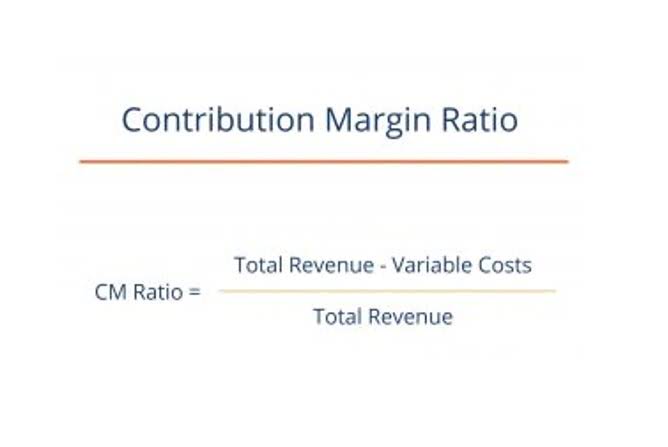7 4: Master Budgets Business LibreTexts

Senior management should also review the budget to ensure it is realistic and achievable. Once the budget has been approved, it should be communicated to all relevant stakeholders and implemented as the basis for financial planning and decision-making throughout the organization. The first step in creating a master budget is establishing individual budgets for each department or area of the business. The business should create these budgets with input from the relevant stakeholders and reflect each area’s specific needs and goals. Regardless of the frequency of updates, businesses should review and adjust their master budget regularly to accurately reflect their current financial activities and objectives. Businesses should also communicate any changes to the budget to all relevant stakeholders to ensure everyone is on the same page.
A master budget may prove helpful for your business
- A master budget is a key tool for controlling costs and optimizing the company’s financial performance.
- Master budgets are important because they serve as a planning tool to guide the company’s actions in the upcoming time period.
- Cloud-based tools provide businesses the flexibility and convenience of accessing their financial data anytime.
- Your company’s size, how long you’ve been in business, and what you do will help determine which master budget components you need.
Once these aims are clarified, have your CFO, or finance leader, meet with your department heads individually, and talk about their specific functional goals. These include goals around sales, product developments, growth rate, hiring, etc. “A lot of people think budgeting is penny-pinching, but that’s not really what it is,” says what is a master budget Steve Lord, a managing director at financial services firm Burkland. We’re firm believers in the Golden Rule, which is why editorial opinions are ours alone and have not been previously reviewed, approved, or endorsed by included advertisers. In a perfect world, your actual totals would match up nicely with your budgeted figures.
- Some of these do not directly derive from the sales that the firm will have because they are mostly fixed in nature.
- The finance team needs to be able to identify potential risks and opportunities and create contingency plans to mitigate risks and capitalize on opportunities.
- The inputs of all of these budgets are used to compile high-level financial statements that show a company’s total sales, expenses, and profits.
- Lastly, we will explore how businesses can leverage technology and software tools to streamline and automate the master budgeting process.
- This depends on the scale of your business, however, no matter the size, it remains the most comprehensive budget planning document.
- However, some businesses may need to prepare their budget earlier, especially if they operate in industries with seasonal fluctuations in demand or supply.
Sales Budget
That said, the inventory balance in the predicted Balance Sheet and the Cost of Goods Sold in the projected Income Statement are closely related. However, creating a master budget can be challenging, and businesses must consider ethical considerations, engage stakeholders, and leverage technology to streamline and automate the process. By doing so, businesses can create a master budget that benefits all stakeholders and contributes to the common good. This includes protecting sensitive financial information from unauthorized access or disclosure.
Operating Expenses Budget

For example, if the company’s sales are lower than projected, managers may review their marketing strategy or adjust their pricing to increase demand. The budget for capital expenditures contains budgetary figures for the large, expensive fixed assets for the business firm. The cash budget states cash inflows and outflows, expected borrowing, and expected investments, usually on a monthly basis. The first schedule to develop is the sales budget, which is based on the sales forecast. The sales budget is not usually the same as the sales forecast but is adjusted based on managerial judgment and other data.

Step 1: Create your sales budget
In fact, the master budget can be broadly defined as the summary of the divisional budget. The CFO should then ensure that department heads are aligned on each other’s functional goals, and that all goals support the company’s main high-level direction for the year. Budgets allow business leaders to have informed conversations about the company’s expenses. If you don’t flesh out what you’re going to spend on each part of the business, you’re probably not putting your money to use strategically.
The master budget is typically prepared annually, but it may be updated more frequently to reflect market conditions or business strategy changes. Businesses must ensure transparency in the budgeting process, providing accurate and complete information to stakeholders. Transparency helps build trust and credibility with stakeholders, including shareholders, investors, and employees. Once individual budgets have been created, they must be combined into a single, comprehensive document – the master budget. Businesses must determine when to start preparing the master budget and how often to update it to ensure it is accurate and reliable.
- Once you have that out of the way, you are ready to calculate projected sales.
- The management of the acquiring company would have to make a decision who should be let go.
- Another is the use of the master budget for employee goal setting and incentives.
- This blog post will delve into what a master budget is, its importance for businesses, who is responsible for creating it, and what skills they need.
- A master budget includes all of the lower-level budgets within an organization.
- We will also discuss the key components of a master budget, provide an example, and look at some of the common challenges businesses face when preparing a master budget.
It should be reviewed, assessed, and updated on (at least) a quarterly basis to see how things are going. Any item that is not in cash, such as depreciation, is ignored by the cash budget. The selling and administrative expense budget deal with non-manufacturing costs such as freight or supplies.
- The management prefers to maintain endingfinished goods inventory equal to 10 percent of next quarter’ssales.
- After almost a decade of experience in public accounting, he created MyAccountingCourse.com to help people learn accounting & finance, pass the CPA exam, and start their career.
- For example, if the company’s sales are lower than projected, managers may review their marketing strategy or adjust their pricing to increase demand.
- For example, maybe you overestimated your sales and over-spent on ingredients that ended up in the trash.

